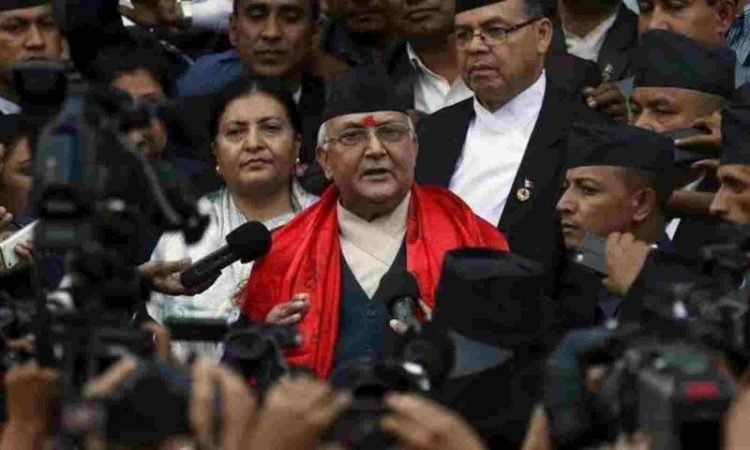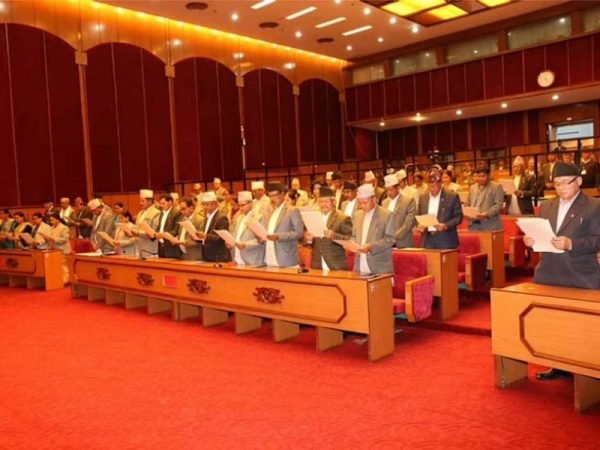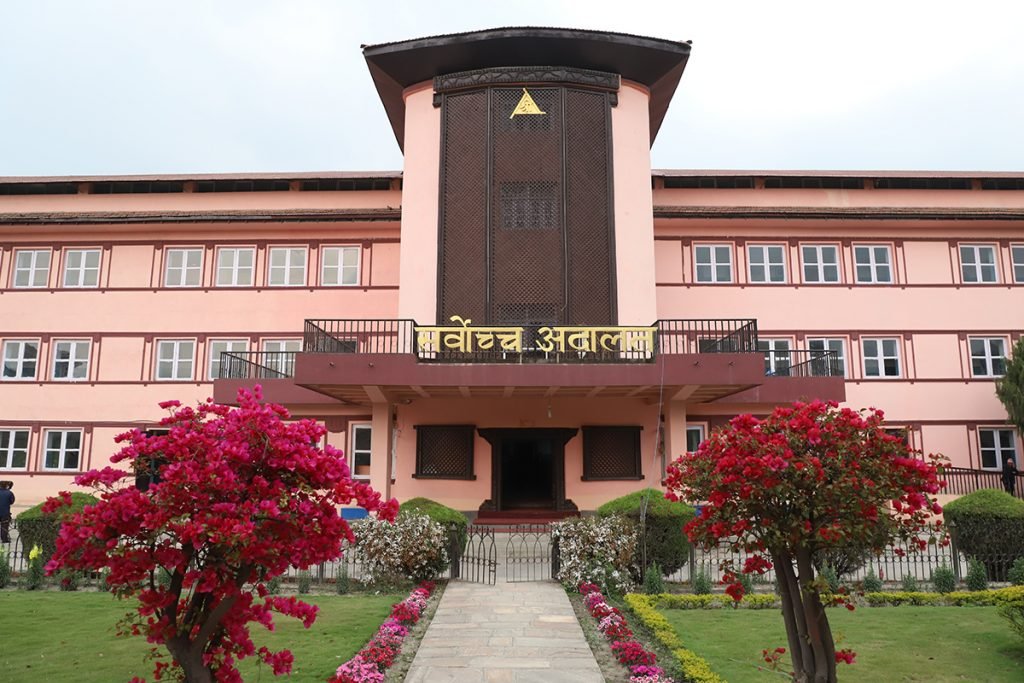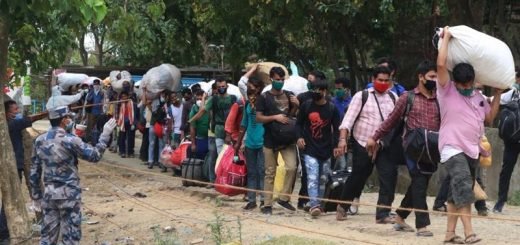Nepal Political Crisis: Hearing starts on writs against house dissolution

Prime Minister K.P. Sharma Oli’s dissolution of parliament on December 20, 2020, raised the possibility of long stretches of political disturbance in the Himalayan country as it has been battling with the novel coronavirus. Subsequently, the opponents of Nepal’s Prime Minister visited the Supreme Court to challenge his disintegration of parliament and therefore the calling of an election, condemning it as a “constitutional coup.” Nepal’s top court from Wednesday will begin hearings on petitions challenging Prime Minister K.P. Sharma Oli’s abrupt decision to break down the parliament, a move that set off open shock and has been marked unlawful.
Nepal’s cabinet suggested dissolving parliament in a crisis meeting on December 20, 2020, with an aide to Prime Minister K.P. Sharma Oli, saying he needs to look for a new order in an overall political decision in the wake of losing support from his own party. Oli who led an alliance with former Maoist rebels to an avalanche triumph on 2017, has faced criticism for sidelining in Nepal’s Communist Party and working through a little circle of allies. Rajan Bhattari said the prime minister had taken the action because of the reaction against him from his party, which had additionally requested that he must step down from the post of the president of the party. After his 2017 win, Oli had vowed to fight corruption and poverty yet gained a little ground, particularly as the Covid-19 pandemic pounded upon its economy, as the Himalayan country is a tourism-dependent country and due to the spread of the novel coronavirus the country was suffering with its failing economy.

The Constitutional Bench has started a hearing on writs against the dissolution of the House of Representatives zeroing in on whether to send the writs on the extended full bench or continue in the Constitutional Bench itself. Chief Justice Cholendra Shumsher Rana, who leads the bench, has offered coherence to the same bench, which after a preliminary hearing on December 25 looked for a composed explanation from the Prime Minister’s Office and the Sheetal Niwasfor their choice to break down the house on December 20, 2020. “The hearing has started. Currently, arguments are being presented on whether to continue the hearing by the Constitution Bench or call an extended full bench,” Kishore Poudel, communication expert at the Supreme Court, told the Kathmandu Post. The Constitutional Bench consists of Justices Hari Krishna Karki, Bishwombhar Prasad Shrestha, Anil Kumar Sinha and Tej Bahadur KC. The Chief Justice’s decision to constitute the bench on December 25 ran into contention as he picked junior judges leaving those in the second and the third position out. A few offended parties have been requesting that the issue should be chosen by an all-encompassing full bench. An all-encompassing full bench comprises of 9 or 11 judges from the Supreme Court.
They have contended that as the Supreme Court is the last mediator of the constitution, the five-member Constitutional Bench, which is only a part of the court, shouldn’t be choosing a particularly issue like the disintegration of the Parliament. The five-member constitutional bench of the Supreme Court, including the Chief Justice, will, at any rate, hear 13 petitions scrutinizing the privileges of the leader.

The petitioners and the other advocated supporting them will place their contentions in the beginning. The Attorney General’s Office will lead the defendants. Attorney General Agni Kharel is planning to shield the public authority. Private legal advisors also will join the attorney general. The supporters chose for the amicus curia, the companion of the court will offer their input towards the end. Senior advocates Badri Bahadur Karki, Satish Krishna Kharel, Bijay Kant Mainali, Geeta Pathak and Purna Man Shakya have been chosen as the amicus curiae.
All Nepal National Free Students’ Union, the student wing of the Pushpa Kamal Dahal Madhav Kumar Nepal faction of the Nepal Communist Party, has dispatched its second round of protests against the KP Sharma Oli dissolving the House of Representatives. On Wednesday, the student association coordinated a lantern rally in Kathmandu as a component of their dissent with the start of the appeal hearing in the Supreme Court of Nepal on Wednesday. Ranjit Tamang, a joint coordinator of the student union, said that different parts of the student wing coordinated whistle rallies across the country to communicate their disappointment with the public authority.
Justice Hari Krishna Karki has decided to recuse himself from the Constitutional bench, which is hearing as many as 13 writs against the K.P Sharma Oli administration’s House dissolution for he in 2015 had, in the capacity of then-attorney general, filled in as an insight to Oli during his first stretch as head of the government. Chief Justice Rana has consequently decided to supplant him with another justice. After hearing Karki’s decision to recuse him, the hearing on the case was adjourned on Wednesday. Next hearing has been scheduled for January 13.
References:
https://www.chinadailyasia.com/article/154188


















